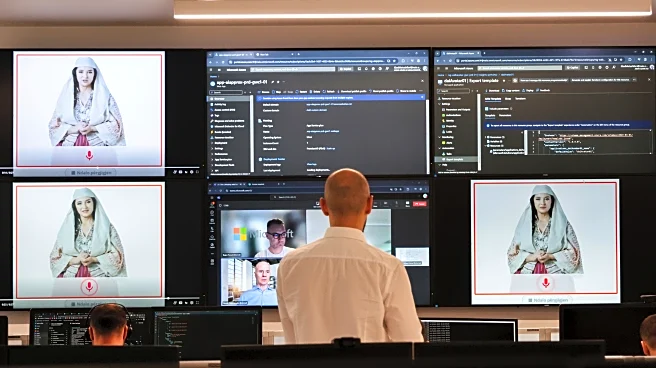What's Happening?
A recent study has employed the movie '101 Dalmatians' to investigate brain activity in individuals with typical development and congenital sensory loss. The study involved 50 participants divided into groups based on sensory experience: typical development,
congenitally blind, and congenitally deaf. Participants were exposed to different versions of the movie—auditory, visual, and audiovisual—while undergoing fMRI scans. The research aimed to understand how sensory deprivation affects brain responses to multimodal stimuli. The study was conducted at the University of Turin and adhered to ethical guidelines, with participants providing informed consent.
Why It's Important?
This research is significant as it provides insights into how congenital sensory loss impacts brain function and sensory processing. Understanding these effects can inform therapeutic approaches and educational strategies for individuals with sensory impairments. The study's use of a popular movie as a stimulus highlights the potential for using engaging, real-world content in scientific research to explore complex neural processes. The findings could contribute to advancements in neuroscience, particularly in understanding the brain's adaptability and plasticity in response to sensory deprivation.
What's Next?
Future research may expand on these findings by exploring other types of sensory stimuli and their impact on brain activity in individuals with sensory loss. Researchers might also investigate the long-term effects of sensory deprivation on cognitive and emotional development. Additionally, the study's methodology could be applied to other populations, such as those with acquired sensory loss, to compare neural responses and adaptability.
Beyond the Headlines
The study raises ethical considerations regarding the inclusion of individuals with sensory impairments in research and the need for accessible and inclusive research practices. It also highlights the importance of interdisciplinary collaboration, combining neuroscience, psychology, and media studies to explore complex human experiences.















